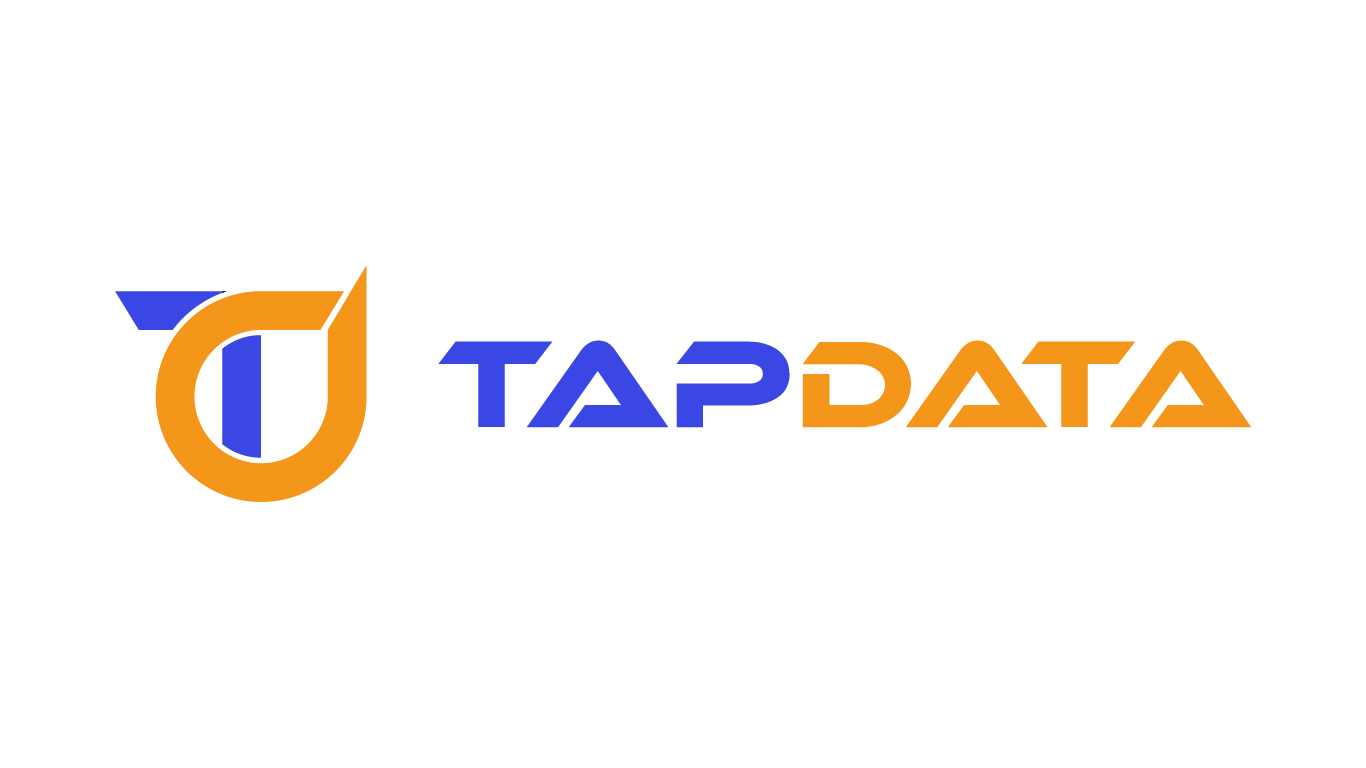Top ETL Tools and Their Benefits

ETL meaning stands for Extract, Transform, and Load, a fundamental process in data management. ETL tools are essential for streamlining data integration by extracting data from diverse sources, transforming it into an appropriate format, and loading it into target systems. The evolution of ETL tools highlights the increasing complexity of data management requirements. In 2024, businesses are more dependent on advanced ETL pipeline solutions for data-driven decision-making. The market for ETL tools, including options like TapData, is rapidly expanding, fueled by the demand for big data analytics and efficient data integration processes. Understanding what is ETL is crucial for leveraging these tools effectively.
Understanding ETL Tools
What is ETL?
ETL Tools perform three crucial functions in data management. ETL Tools perform three crucial functions in data management. These functions include Extract, Transform, and Load. Each function plays a vital role in handling data efficiently.
Extract
Extraction involves retrieving data from various sources. ETL Tools gather data from databases, spreadsheets, and other storage systems. This process ensures that all relevant data is available for further processing.
Transform
Transformation modifies the extracted data into a suitable format. ETL Tools apply rules and functions to clean and structure the data. This step ensures that the data meets the requirements of the target system.
Load
Loading transfers the transformed data into a destination system. ETL Tools move the data into databases, data warehouses, or other storage solutions. This step completes the ETL process by making the data accessible for analysis.
Importance of ETL in Modern Data Management
ETL Tools are essential in modern data management. They provide several benefits that enhance data handling and utilization.
Data Integration
Data integration combines data from different sources into a unified view. Data integration combines data. ETL Tools facilitate this integration by ensuring seamless data flow. Organizations can achieve a comprehensive understanding of their data landscape.
Data Quality and Consistency
Maintaining data quality and consistency is critical. ETL Tools ensure that data remains accurate and reliable. These tools apply validation checks and corrections to uphold data integrity.
Efficiency in Data Processing
Efficiency in data processing is a significant advantage of ETL Tools. These tools automate repetitive tasks and reduce manual intervention. Organizations can process large volumes of data quickly and accurately.
Scientific Research Findings:
A study published in the Journal of Cloud Computing highlights the importance of evolving ETL methodologies. Keeping pace with advancements ensures optimal use of ETL Tools. Researchers and practitioners benefit from staying updated on trends and practices.
Categories of ETL Tools
Open Source ETL Tools
Open source ETL tools provide flexibility and cost-effectiveness. These tools allow users to modify and customize the software according to specific needs.
Features
Open source ETL tools offer a variety of features. Users can access a wide range of connectors for different data sources. The community-driven development ensures regular updates and improvements. Open source tools often include a graphical user interface for ease of use.
Pros and Cons
Open source ETL tools have several advantages. Users benefit from the absence of licensing fees. Community support provides solutions and enhancements. However, these tools may require technical expertise for setup and maintenance. Users might face challenges with scalability and integration with other data platform components.
Commercial ETL Tools
Commercial ETL tools deliver robust features and dedicated support. These tools cater to businesses that require comprehensive solutions for data integration.
Features
Commercial ETL tools include advanced features for data security and quality. Users can expect high-speed data processing capabilities. These tools often come with extensive documentation and professional support services.
Pros and Cons
Commercial ETL tools offer significant benefits. Users enjoy reliable customer support and regular updates. The tools provide scalability to handle large volumes of data. However, the cost of licensing can be a drawback for some organizations. Users may also encounter limitations in customization compared to open source options.
Cloud-based ETL Tools
Cloud-based ETL tools leverage the power of cloud computing. These tools provide scalability and flexibility for modern data management needs.
Features
Cloud-based ETL tools offer seamless integration with various cloud services. Users can access data processing capabilities from anywhere. The tools provide automatic updates and maintenance, reducing the need for manual intervention.
Pros and Cons
Cloud-based ETL tools present several advantages. Users benefit from the ability to scale resources based on demand. The tools ensure data security through cloud provider protocols. However, reliance on internet connectivity can pose challenges. Users may face concerns about data privacy and compliance with regulations.
Top ETL Tools of 2024
Tool 1. TapData
TapData, a low-code real-time ETL tool, was conceived with a singular mission – to assist enterprises in achieving the goal of “doing the one and only final ETL” amidst a myriad of diverse data requirements. Its groundbreaking zero-code solution empowers organizations to deploy robust, high-performance data pipelines within minutes, a stark departure from the traditional months-long process.
Whether you opt for a self-managed deployment with our Community open-source version (core capabilities open-sourced, free but lacking a user interface, requiring technical expertise for setup) and On-prem version (Support for centralized data storage & data as a service platform) or choose the convenience of TapData Cloud (two pipelines available for free), we’ve got you covered. TapData ensures a versatile solution to suit your specific needs. Additionally, TapData Cloud offers a seamless experience with a 15-day free trial, requiring no payment information. Both options assure reliable data migration with zero downtime, ensuring that your ETL processes are not only efficient but also effortlessly managed.
Here are a few unique advantages offered by Tapdara to achieve zero-code real-time data integration:
A Wide Range of Connectors:At TapData, we have a library of pre-built connectors that includes Relational databases (e.g., MySQL, PostgreSQL, Oracle Database, Microsoft SQL Server, etc.), NoSQL databases (e.g., MongoDB, Redis, etc.), Cloud Databases, SaaS systems, and files.
Capabilities: TapData excels in both data integration and centralized caching. It supports various deployment options, including Cloud, On-Premises, and Community versions.
Pricing Model: With a pricing model based on cores, TapData provides a predictable cost structure, offering a higher cost-efficiency. TapData also supports a Forever Free Tier, allowing organizations to explore its features at no cost.
Custom Development: The tool facilitates custom development at a reasonable cost of $1000 per Connector, enhancing its adaptability to unique business needs.
Real-time Processing: TapData stands out with its strong real-time capabilities, boasting a low data latency of 1-3 seconds. With its end-to-end Real Time Pipeline, data is collected, from source to target, processed and synced with sub-second latency. It also supports Materialized View, enhancing data processing efficiency.
User-Friendly Interface: TapData is characterized by its strong real-time processing capabilities, combined with a user-friendly, visually intuitive interface.
Low Learning Curve: The tool is designed to have a low learning curve, making it accessible to users with varying levels of technical expertise.
Tool 2: Apache Airflow
Key Features
Apache Airflow provides a robust platform for orchestrating complex workflows. Users can define workflows as code, allowing for dynamic pipeline generation. The tool offers extensive integrations with various data sources and services. Apache Airflow supports scheduling, monitoring, and managing workflows efficiently.
Pricing
Apache Airflow is an open-source tool. Users can access it for free. Organizations may incur costs related to infrastructure and maintenance.
User Reviews
Users appreciate Apache Airflow's flexibility and scalability. Many find the tool's ability to handle complex workflows beneficial. Some users mention a steep learning curve. Overall, Apache Airflow receives positive feedback for its capabilities.
Tool 3: Talend Open Studio
Key Features
Talend Open Studio offers a user-friendly interface for data integration tasks. Users can access a wide range of connectors for different data sources. The tool provides drag-and-drop functionality for designing data flows. Talend Open Studio supports real-time data processing and transformation.
Pricing
Talend Open Studio is available as an open-source solution. Users can download and use the tool without licensing fees. Organizations may choose to upgrade to paid versions for additional features and support.
User Reviews
Users commend Talend Open Studio for its ease of use. The tool's intuitive interface simplifies data integration processes. Some users note limitations in handling large datasets. Overall, Talend Open Studio is favored for its accessibility and functionality.
Tool 4: Informatica PowerCenter
Key Features
Informatica PowerCenter delivers comprehensive data integration capabilities. Users benefit from advanced data transformation and cleansing features. The tool supports high-performance data processing and scalability. Informatica PowerCenter provides robust security measures for data protection.
Pricing
Informatica PowerCenter is a commercial tool. Users must contact the vendor for pricing details. Costs vary based on organizational needs and configurations.
User Reviews
Users praise Informatica PowerCenter for its reliability and performance. The tool's ability to handle complex data transformations is highly valued. Some users mention the high cost as a drawback. Overall, Informatica PowerCenter is recognized as a leading ETL solution.
How to Choose the Right ETL Tool
Considerations for Selection
Budget
Budget plays a crucial role in selecting an ETL tool. Organizations must evaluate the cost of licensing and maintenance. Open-source tools often provide cost-effective solutions. Commercial tools may require a higher investment. Weighing the benefits against the costs helps in making informed decisions.
Scalability
Scalability determines the ability of an ETL tool to grow with your needs. Businesses should assess their data volume and growth projections. An ideal ETL tool should handle increasing data loads efficiently. Cloud-based tools often offer scalable solutions. Ensuring scalability prevents future limitations.
Ease of Use
Ease of use impacts the efficiency of data integration processes. User-friendly interfaces reduce the learning curve for teams. Tools with drag-and-drop features simplify workflow design. Consideration of the technical expertise of your team is essential. Choosing a tool that aligns with your team's skills enhances productivity.
Use Cases and Industry Applications
Healthcare
Healthcare organizations rely on ETL tools for data integration. Patient records, clinical data, and billing information require seamless handling. ETL tools ensure data accuracy and compliance with regulations. Efficient data processing supports better patient care and operational efficiency.
Finance
The finance industry demands precise data management. ETL tools facilitate the integration of financial data from various sources. Accurate data transformation supports financial analysis and reporting. Financial institutions benefit from enhanced decision-making capabilities. Data security features of ETL tools protect sensitive financial information.
Retail
Retail businesses utilize ETL tools for managing sales and inventory data. Integration of data from multiple channels provides a comprehensive view. ETL tools enable real-time data processing for timely insights. Retailers improve customer experiences through data-driven strategies. Efficient data handling supports inventory management and sales forecasting.
Additional Resources
FAQs about ETL Tools
Common Questions
What are ETL tools? ETL tools facilitate data extraction, transformation, and loading processes. These tools help in integrating data from various sources into a unified system.
Why are ETL tools important? ETL tools ensure data quality and consistency. These tools enhance efficiency in data processing and support data-driven decision-making.
Consider factors such as budget, scalability, and ease of use. Evaluate the specific needs of your organization to choose an ETL tool most suitable tool. Consider factors such as budget, scalability, and ease of use. Evaluate the specific needs of your organization to select the most suitable tool.
Troubleshooting Tips
Data Extraction Issues: Ensure proper configuration of data source connections. Verify access permissions for all data sources.
Transformation Errors: Check transformation rules and logic. Validate data formats and structures before processing.
Loading Failures: Confirm target system compatibility. Monitor network connectivity and storage capacity.
Related Articles and Further Reading
The Future of ETL Tools
The future of ETL tools involves advancements in cloud-based solutions. Cloud-ETL models address big data challenges by offering scalability and flexibility. Researchers emphasize the importance of evolving ETL methodologies to handle complex data structures effectively. Keeping pace with these trends ensures optimal use of ETL tools.
Comparing ETL Tools: A Comprehensive Guide
A comprehensive guide compares various ETL tools based on features, pricing, and user reviews. This guide helps organizations make informed decisions by providing detailed insights into each tool's capabilities. Understanding the strengths and limitations of different ETL tools aids in selecting the best fit for your data integration needs.
Choosing the right ETL tool is essential for efficient data management. ETL tools streamline data processes and enhance data quality. Organizations can gain valuable insights for informed decisions. Exploring the tools and resources mentioned can help you find the best fit. The future of ETL tools in data management looks promising. Advancements will continue to support data-driven decision-making. Embracing these tools can foster business growth and improve operational efficiency.
Unlock the Power of ETL in Education with TapData
Are you ready to take your educational institution's data integration to the next level? TapData offers cutting-edge ETL solutions tailored specifically for the education sector. Our tools streamline data management, enhance data-driven decision-making, and ensure compliance with industry regulations.
Discover how TapData can transform your data into actionable insights, leading to improved educational outcomes and a competitive edge. Don't let outdated data practices hold you back—explore TapData's solutions today and future-proof your institution's data integration strategy.
[Get Started with TapData Today] | [Request a Demo]
See Also
Picking the Finest ETL Solution: In-Depth Tool Evaluation
Revealing the Top ETL Solutions: Analysis of Advantages and Disadvantages
Elite ETL Tools Compilation: Feature and Functionality Comparison


